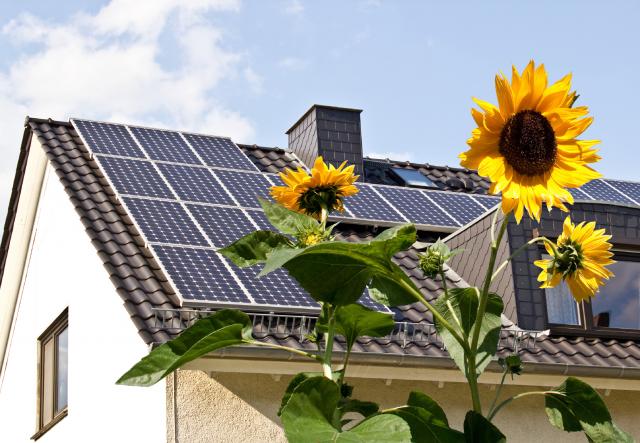
All-electric new homes: Advancing sustainable building in Illinois
Efficient electric homes offer a world of benefits for both builders and home buyers—and a new, exciting way for utilities to incorporate emerging technology into their energy efficiency portfolios.
In 2019, Slipstream was asked to collaborate with an Illinois utility to envision what the next generation of residential efficiency programs might look like. Earlier this year, we launched a pilot with the objective of recruiting Illinois builders to go all-electric while linking solar and EV offerings into an integrated, comprehensive package.
In addition to outreach and education, the program provides a framework to reward builders for each qualifying home that meets core requirements for air tightness, indoor air quality, electric heat pump space and water heating, high-efficiency appliances, LED lighting, and more.
Why should builders make the switch to all-electric?
Just a few benefits of building electric include the ability to:
- Appeal to evolving buyer preferences
- Upsell additional technologies (solar, EV-ready, and more)
- Avoid the costs and coordination of installing a gas line
- Offer increased safety and peace of mind (no combustion)
- Design layouts/floorplans with more flexibility
Advantages for home buyers
All buyers want to save energy and money—but electric homes offer so much more. While advances in technology and renewable energy continue to impact buyer preferences, electric homes are an obvious solution for customers who value:
- Sustainability and minimizing environmental impact
- Utilizing solar to reduce dependence on the grid
- Smart home features like induction cooking, EV charging, etc.
- Health, safety, and peace of mind
- Superior comfort and indoor air quality
Electric homes + solar: A winning combination
Arguably the biggest advantage of electric homes is the opportunity to install and capitalize on solar PV.
Rooftop solar can help offset the amount of electricity needed from the grid—helping homeowners take even more control of their energy costs and carbon footprint.
Even better, an electric home with solar has the potential to generate enough renewable energy to completely offset its total annual electric use from the grid—achieving net zero status. And, with the addition of battery storage, an efficient electric home can operate independently of the grid for a period of time.
An electric home with solar will continue to thrive as the grid gets cleaner over the long life of the home and is likely to survive into a decarbonized world.
What are builders saying?
Considering all the benefits mentioned above—plus projected annual energy savings of nearly $1,000 (not including savings from solar panels)—one of our first pilot participants, BrightLeaf Homes, is especially excited to add electric homes to their portfolio.
“Providing our clients with a well-researched and tested all-electric option will enable us to provide them with the best home in their desired location. We think our clients are really going to appreciate the ability to truly go net zero without needing to find a way to offset the remainder of their energy use that is typically derived from fossil fuels.”
Contact Brett Bridgeland to discuss starting an electric homes new construction program for your utility.